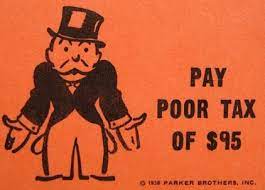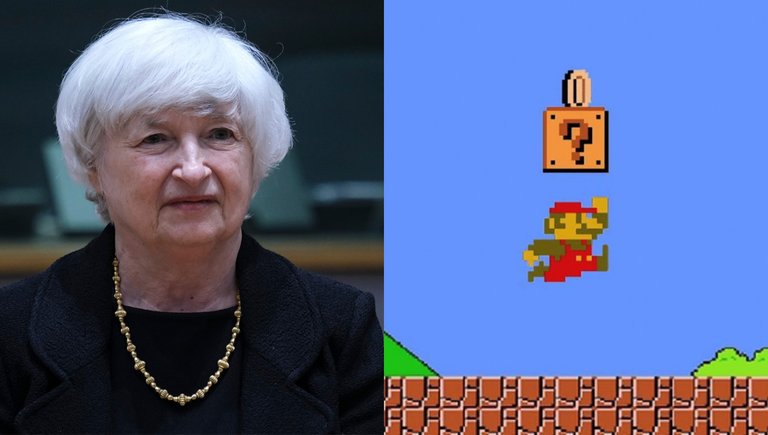

https://bitcoinist.com/irs-will-not-tax-unsold-staked-crypto-as-income/
It's pretty crazy how much I've been talking about taxes lately, only to be hit with this bombshell in my news feed last night.
According to a Forbes report on Thursday, the IRS noted that it will refund the $3,293 in income tax and statutory interest the couple paid on their staked 8,876 Tezos (XTZ) tokens.
In the court filing, the Jaretts noted that tokens obtained through proof-of-stake protocols should be considered “new property” created by the taxpayer, not as income. Therefore, this new property should not be taxed until it is sold or exchanged for a “readily accessible form of wealth.”

This is pretty huge...
Up until now, the IRS has tried to have their cake and eat it too. They classify crypto as property, but then try to act like the property is income. As I have written about this previously a few times: that it is ridiculous and a strategy doomed to fail in all ways imaginable.
- Low Liquidity prevents crypto from being taxed as income.
- High Volatility prevents crypto from being taxed as income.
- Extreme security risks prevent crypto from being taxed as income.
- Rugpull / Hacker / Exploit / Phishing / Cryptojacking / ETC
- Also credible lies prevent crypto from being taxed as income.
- "I lost it in a boating accident."
- "I lost the keys."
- Because the lie is credible it could also be truth.
However, this move to tax crypto as “new property created by the taxpayer" makes a ton of sense and provides greatly needed regulatory clarity. This move makes my White Elephant Airdrop Attack completely null and void. Under a law like this airdrops would not be taxed until they are sold, and no longer would the IRS be assuming that all crypto markets have infinite liquidity, which is how the exploit occurs.
Don't quote me on this, but I've also read that there is no "like-kind" clarity in place for crypto either. Therefore, when transferring one crypto for another, this is technically a taxable event that needs to be logged, but that taxable event doesn't actually need to be paid until the "property" we bought with the "property" is realized as USD or another asset with better liquidity / known value.
A like-kind exchange under United States tax law, also known as a 1031 exchange, is a transaction or series of transactions that allows for the disposal of an asset and the acquisition of another replacement asset without generating a
currenttax liability from the sale of the first asset.
For example, if you traded a house for another house, technically you don't know what either house is worth. Therefore, how can it be taxed? However, I believe there are like "like-kind" laws in place for situations like this that allow the taxes to be deferred until the actual value can be more accurately calculated. At least that's my understanding. I read it one a website that doesn't have a ton of credibility and it was a little confusing. I dun know man, go ask @nealmcspadden he knows all this stuff.
What is certain is that taxing crypto is an issue that is extremely vague and up for debate on many fronts. The possible precedent being set by this case could not only benefit everyone in crypto but also simply make the law a little bit less vague, which is good either way.
However, according to confidential sources familiar with the matter, the Jaretts intend to pursue the case further in court to enable them to obtain long-term protection.
Most news outlets are reporting this case as an automatic victory and that legal precedence has already been 100% confirmed. Obviously when we dig deeper into the facts even the couple that started the lawsuit is pushing for long-term protection, not a one-off victory over a couple thousand dollars. So don't be assuming that this "law" is set in stone. It's just the outcome of a single court case so far.
But like I've said many times, the court cases involving crypto are just going to get weirder and weirder over the next decade. Trust me: we are going to see some crazy stuff. There's no way around it because the legal system is not going to be able to navigate money as technology that evolves exponentially. Government is slow, and crypto is fast.
This move by the couple might set a precedent for anyone who wishes to profit from the rapidly growing cryptocurrency staking industry, which is currently estimated to be worth over $18 billion.
Conclusion
This small court case could have huge ramifications when it comes to taxing crypto. Obviously we should all be pushing for cryptocurrency to be classified as currency instead of property, but I'll take what I can get.
Using this precedence in combination with like-kind laws, one could argue that my Taxes and Hyperinflation problem has been solved. We can now compound farm yield pools, and we are creating tax events, but those tax events don't have to be paid off until the property is sold and the value is known. Then if we never sell the property or we just trade it for other properties, the taxes never materialize. Of course to know for sure we'd have to win a court case that proves it, and I'm not that brave so, I'll leave it to someone else :D.
“new property created by the taxpayer"
What this property?
I don't know the value of this property until I sell it.
Classic.
Posted Using LeoFinance Beta


